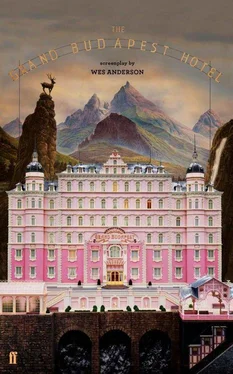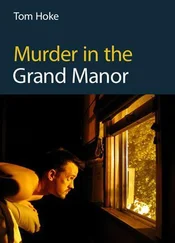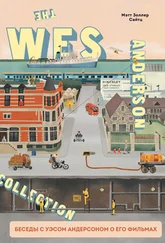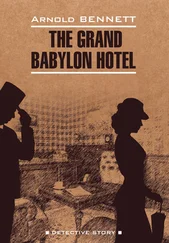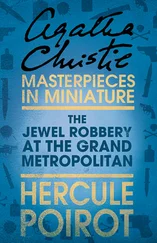THE GRAND BUDAPEST HOTEL
screenplay by
WES ANDERSON
story by
WES ANDERSON & HUGO GUINNESS
INTRODUCTION
by Hugo Guinness
I remember in Paris, 2007, Wes and I spent some time in restaurants and cafés and on walks in public parks discussing a mutual friend of ours. We talked about the things he said, his life, his mannerisms. He was an unusual character – full of anecdotes, charm, and bon mots .
He made us laugh.
Wes would write occasional casual notes about him. I then returned to New York and heard nothing from Wes about this character for five or six years. He was forgotten.
In 2012, out of the blue, Wes revived him.
We worked together over a period of several weeks and then multiple telephone calls. The character became M. Gustave H, the bisexual concierge of a hotel in middle Europe. A plot was devised around him, and dialogue was written, inch by inch. I would offer the occasional comment and answer Wes’s hypothetical questions. If an idea or a line of dialogue by me actually got into the script, it was a good day. Mostly I just listened, and my suggestions were ignored. In a few short weeks, the script was finished, and Wes was off to East Germany to shoot The Grand Budapest Hotel .
Hugo has either deliberately or involuntarily distorted the above account of our collaboration.
I do not recall him ever being satisfied to see his suggestions ignored. He would, instead, become extremely moody and irritated in those instances, which usually makes him slightly funnier, and it’s when he came up with some of our best bits.
Also, he is not inclined to sit back and listen. His instinct, I find, is to disagree and say something slightly belittling. His critic ism is always insightful and pointed, not to say cruel, which helps it stick in the mind, often permanently. His contribution to this story should not be underestimated by anyone other than himself.
The Grand Budapest Hotel was first shown at the Berlin Film Festival in February 2014
Fox Searchlight Pictures in association with Indian Paintbrush and Studio Babelsberg present
An American Empirical Picture
PRINCIPAL CAST
M. GUSTAVE Ralph Fiennes
ZERO MOUSTAFA Tony Revolori
MR. MOUSTAFA Murray Abraham
SERGE X. Mathieu Amalric
DMITRI Adrien Brody
JOPLING Willem Dafoe
DEPUTY KOVACS Jeff Goldblum
LUDWIG Harvey Keitel
YOUNG WRITER Jude Law
M. IVAN Bill Murray
HENCKELS Edward Norton
AGATHA Saoirse Ronan
M. JEAN Jason Schwartzman
CLOTILDE Léa Seydoux
MADAME D. Tilda Swinton
AUTHOR Tom Wilkinson
M. CHUCK Owen Wilson
PRINCIPAL CREW
Directed by Wes Anderson
Produced by Wes Anderson, Scott Rudin, Steven Rales, Jeremy Dawson
Director of Photography Robert Yeoman A.S.C.
Edited by Barney Pilling
Production Designer Adam Stockhausen
Costume Designer Milena Canonero
Music by Alexandre Desplat
Music Supervisor Randall Poster
Special Photography Unit Roman Coppola
Casting Directors Douglas Aibel, Jina Jay
EXT. CEMETERY. DAY
The present. A graveyard in the city center of a great Eastern European capital. Frost covers the ground among the stones and between rows of leafless trees. A teenage girl in a beret and trench-coat with a well-read, dog-eared novel called The Grand Budapest Hotel tucked under her arm stands facing a tarnished bust of a slender, balding, spectacled old man. A bronze plaque below reads, in large letters:
AUTHOR
Insert:
The plaque. There is a block of smaller text at the bottom which states simply:
IN MEMORY OF OUR NATIONAL TREASURE
All around the base of the statue there are little metal hooks, from which hang hundreds of hotel-room keys of every age and variety from all over the world. The girl adds a new set to the tribute.
INT. STUDY. DAY
Twenty years ago. A cluttered office with French windows and ornate mouldings. There are books in shelves and stacks, first editions, dictionaries, dime-store paper backs, translations in numerous languages. There is a typewriter on the desk and an extensive collection of literary prizes on a bureau.
The author, seventy-five and identical to his sculpted image, sits with his hands clasped and addresses the camera.
AUTHOR
It is an extremely common mistake: people think the writer’s imagination is always at work, that he is constantly inventing an endless supply of incidents and episodes, that he simply dreams up his stories out of thin air. In point of fact, the opposite is true. Once the public knows you are a writer, they bring the characters and events to you – and as long as you maintain your ability to look and carefully listen, these stories will continue to seek you out –
A six-year-old boy dressed in a grey military uniform with short trousers appears next to the desk and points a miniature Luger pistol at the author. The author warns him, icy:
AUTHOR
Don’t do it. Don’t!
The boy hesitates, then fires. A yellow, plastic pellet ricochets off the author’s chest and rings against a whiskey glass as the author makes a violent lunge for the boy – who evades him and dashes off. The author looks at a note card and rambles a bit, searching for his place.
AUTHOR
Over your lifetime. I can’t tell you how many times. Somebody comes up to me. ( Back on track .) To him who has often told the tales of others, many tales will be told.
The boy returns, the gun now tucked under his belt, and sits, immediately comfortable, on the author’s lap with the old man’s arms wrapped around his shoulders. The conflict seems never to have existed. They both look into the camera as the author concludes:
AUTHOR
The incidents that follow were described to me exactly as I present them here, and in a wholly unexpected way.
EXT. MOUNTAIN RANGE. DAY
The late sixties. A stunning view from a rusty, iron-lattice terrace suspended over a deep crevasse, green and lush, alongside a high cascade. The author continues in voice-over as the camera glides along a cracked path through a plot of untamed edelweiss and buttercups.
AUTHOR
( voice-over )
A number of years ago, while suffering from a mild case of ‘Scribe’s Fever’ (a form of neurasthenia common among the intelligentsia of that time), I had decided to spend the month of August in the spa town of Nebelsbad below the Alpine Sudetenwaltz – and had taken up rooms in the Grand Budapest –
The camera comes to a stop as it reveals a sprawling nineteenth-century hotel and baths situated on a wide plateau. There is a deep, formidable staircase up to a regal entrance. There is a promenade above and a glass-panelled conservatory below. A rickety funicular groans as it slowly climbs its hillside tracks. The grass needs cutting, the roof needs patching, and more or less every surface of the building needs a coat of paint.
– a picturesque, elaborate, and once widely celebrated establishment. I expect some of you will know it. It was off-season and, by that time, decidedly out-of-fashion; and it had already begun its descent into shabbiness and eventual demolition.
Montage:
The nine other guests of the hotel each observed from a respectful distance: a frail student; a fat businessman; a burly hiker with a St. Bernard; a schoolteacher with her hair in a bun; a doctor; a lawyer; an actor; and so on.
Читать дальше
